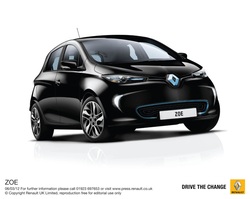
You have to do some planning, but it will help you find charging stations on your route, and most people will be able to get by with the overnight charge at home. (Of course, you do need a garage or a drive.) But we're getting news stories about black-outs soon because we don't have enough power to keep the lights on - will the UK's already stretched grid be able to power up thousands, or potentialy millions of EVs?
Ben has a positively geeky interest in the conundrum, not just to answer awkward questions from journalists. He has a app showing how much power is being charged in the UK (Grid Carbon) and shows me the huge dip in demand overnight that could be taken up by EVs.
With the right technology, the charging could be switched off at peaks (eg half-time at a major footie game or ad break in East Enders when kettles go on all over the country.) In future, he reckons the power for the kettle could be drawn from the car's battery at peak times, because the car stores the electricity at times of low demand and feeds it back to the home when required. In the future, too, batteries taken out of EVs because they are no longer at their peak efficiency could be used to store electricity by power stations or businesses. All clever stuff, it just needs some joined-up thinking. Otherwise it's fracking until Yorkshire sinks.
Renault Zoe
£13,995 plus £70 per month battery lease for 7,500 miles per year, £77 for 9500 miles, and rising with mileage
Compared to Ford Fiesta TDCi 75PS 5dr £14,095 plus £65 for a 45 litre tank of diesel
Zoe attracts no road tax, congestion charge or benefit-in-kind tax
It's official range is 130 miles, but Renault reckons in real world motoring it will do 60-64 in witer, 90 in temperate w
 RSS Feed
RSS Feed
